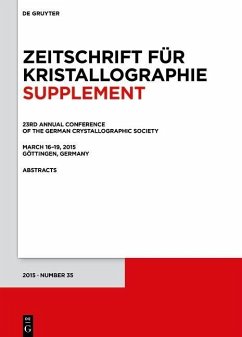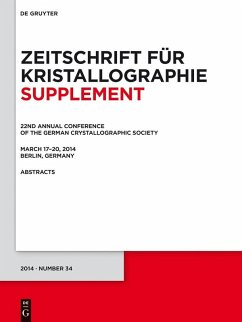
German Knowledge Intensive Business Services (KIBS) in China (eBook, PDF)
An empirical analysis of German KIBS in Beijing as knowledge intermediaries
Versandkostenfrei!
Sofort per Download lieferbar
39,99 €
inkl. MwSt.
Weitere Ausgaben:

PAYBACK Punkte
0 °P sammeln!
Diploma Thesis from the year 2012 in the subject Geography / Earth Science - Economic Geography, grade: 1,1, University of Marburg, language: English, abstract: Context: China's rapid economic development during the last decades and recent signs of a far reaching structural shift from an industrialized export oriented economy to an economy driven by innovation, domestic consumption and services is reflected by German investment patterns inside mainland China. While the bulk of German investments were traditionally focused on industrial production, a diverse set of market drivers led to an incr...
Diploma Thesis from the year 2012 in the subject Geography / Earth Science - Economic Geography, grade: 1,1, University of Marburg, language: English, abstract: Context: China's rapid economic development during the last decades and recent signs of a far reaching structural shift from an industrialized export oriented economy to an economy driven by innovation, domestic consumption and services is reflected by German investment patterns inside mainland China. While the bulk of German investments were traditionally focused on industrial production, a diverse set of market drivers led to an increased investment of German Knowledge-Intensive Business Services (KIBS) as well. As a sector that has been rarely researched before, German KIBS in China are an integral part of the German business community, shaping their environment in various ways. Content: This thesis aims to fill a research gap by providing a baseline study and qualitative survey on the presence, business activity and structure of German KIBS in China, as well as the function of German KIBS in Beijing as "knowledge intermediaries". Theoretical considerations for this work are based on recent KIBS-research, outlining KIBS-functions and knowledge processing mechanisms, interaction patterns with partners and the relevance proximity. Furthermore, legal and economic framework conditions for foreign service companies in China are outlined, introducing Chinese government policies, regulations and current problems which affect the work of foreign companies in China. The subsequent empirical analysis consists of two parts: A qualitative baseline study with a focus on the overall situation of German KIBS in the context of Chinese service sector development and an empirical micro analysis based on interviews, which aims to provide more detailed insights on German KIBS operations with respect to: - Market entry - China specific regulations and challenges - External network relationships - Innovation, mediation and interaction patterns within a project As a conclusion, hypothesis are formulated based on the survey findings and possible areas of further research are outlined.
Dieser Download kann aus rechtlichen Gründen nur mit Rechnungsadresse in A, B, BG, CY, CZ, D, DK, EW, E, FIN, F, GR, HR, H, IRL, I, LT, L, LR, M, NL, PL, P, R, S, SLO, SK ausgeliefert werden.













